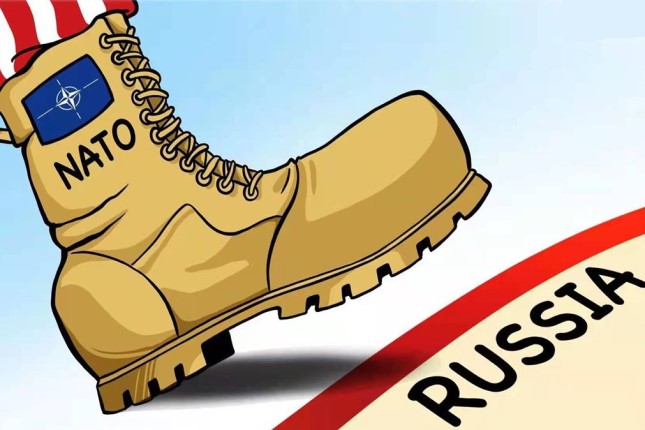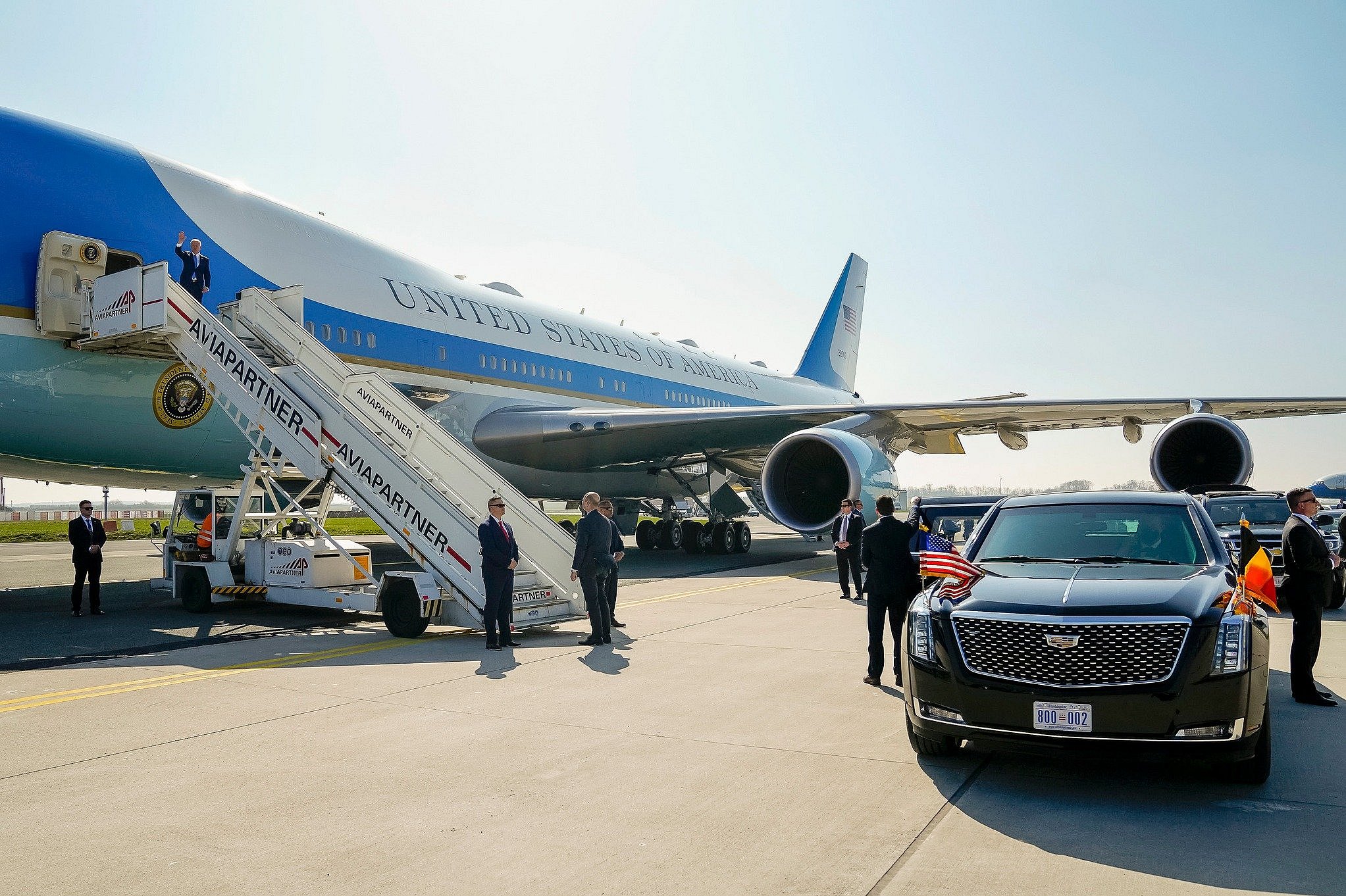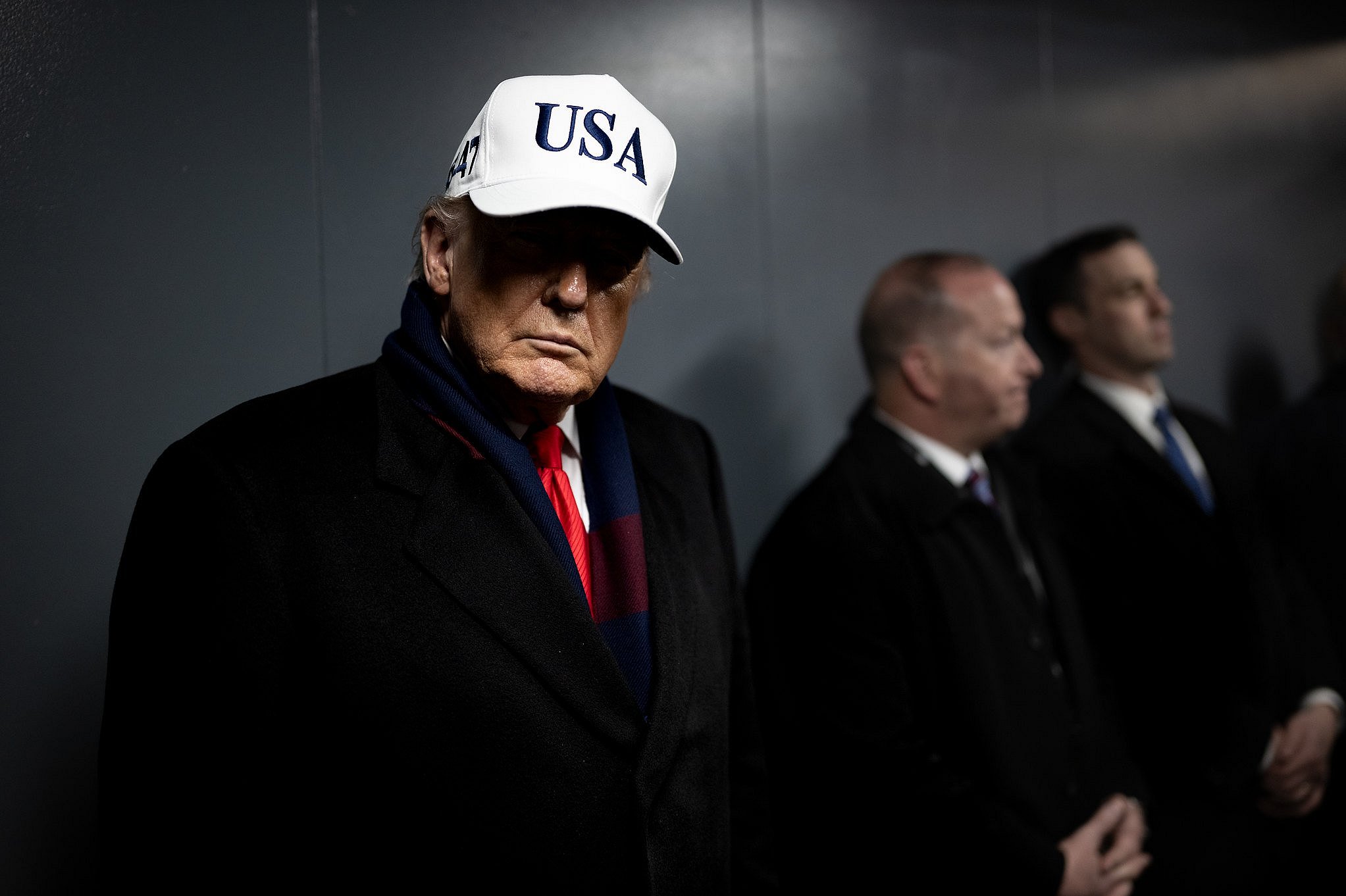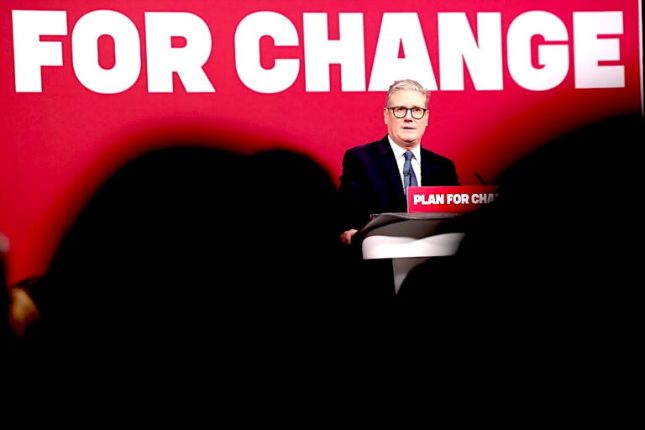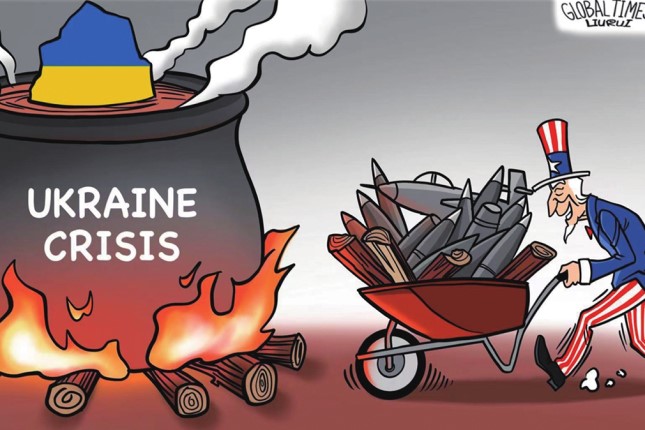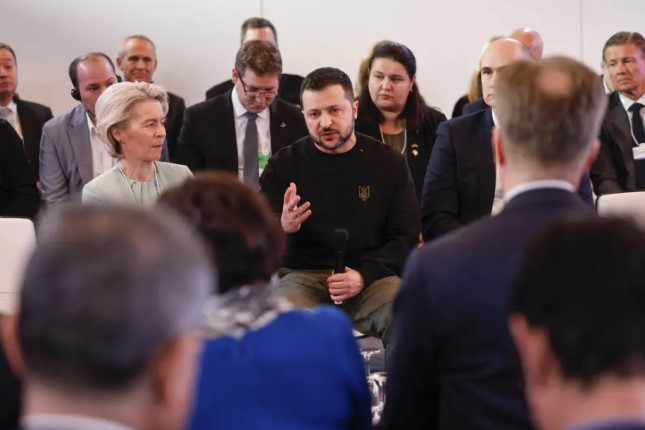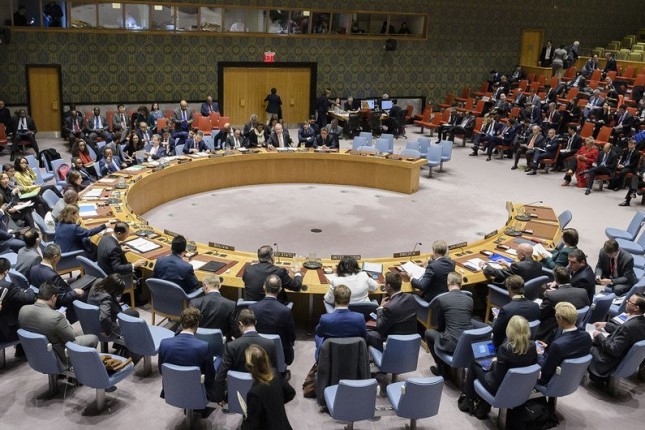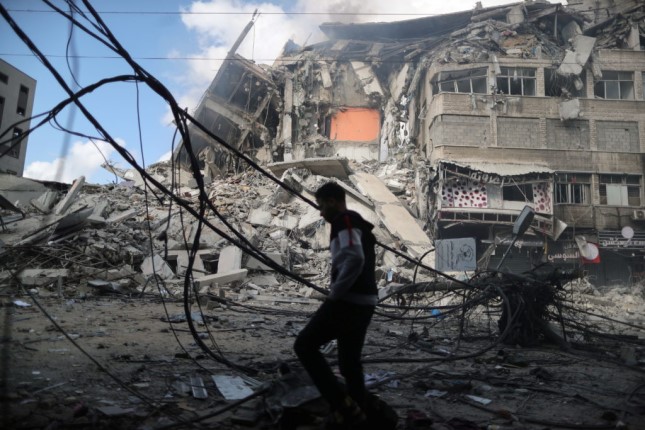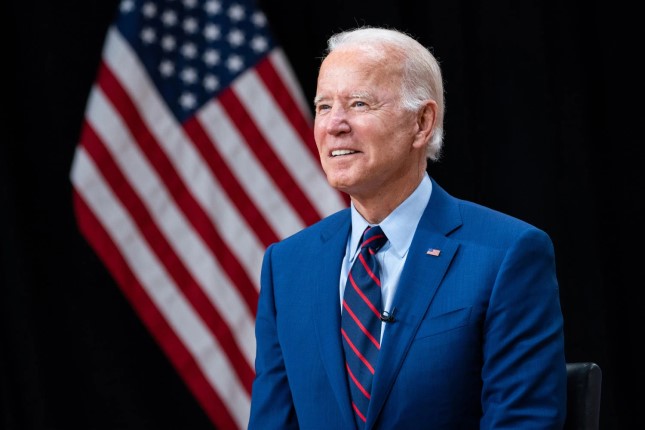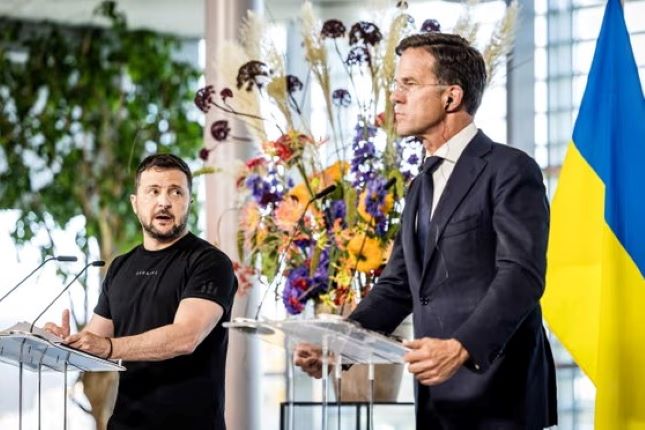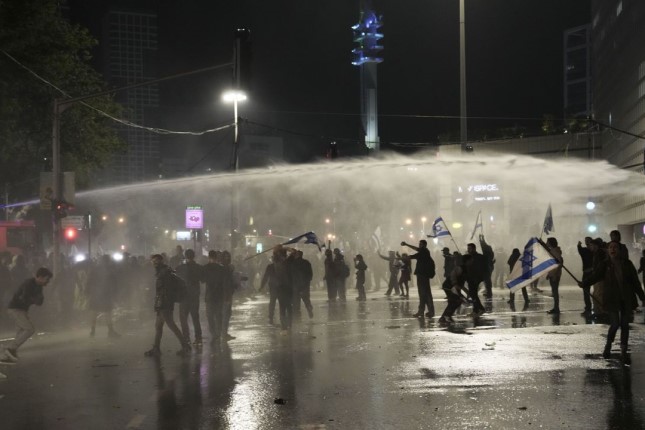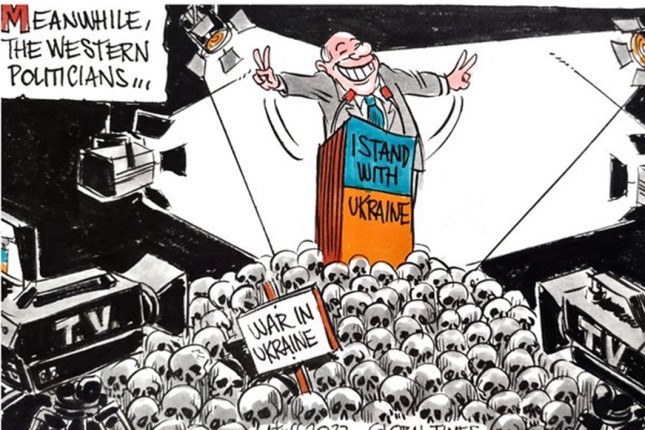With a Finnish flag rising first time outside the NATO headquarters, the Nordic nation officially became NATO's 31st member country at a meeting of the US-led bloc's foreign ministers, including US Secretary of State Antony Blinken, on Tuesday in Brussels, a historic shift away from the Nordic nation's traditional policy of neutrality, which Chinese experts believe now pushes Finland to the forefront against Russia and may spur Moscow to boost its nuclear deployment, thus making Europe's overall security landscape even more precarious.
Finnish President Sauli Niinisto travelled to Brussels and participated in the official ceremony of his country's accession to NATO on Tuesday. Finnish Foreign Minister Pekka Haavisto and Defense Minister Antti Kaikkonen also took part in the ceremony.
NATO Secretary General Jens Stoltenberg said on Tuesday that from the day on, "Finland will get an ironclad security guarantee," as the rule of "one for all, all for one" now apply to Finland.
Finland, along with Sweden, announced their intention to join NATO in May 2022, just months after the outbreak of the Russia-Ukraine military conflict.
In response, Kremlin spokesman Dmitry Peskov warned on Tuesday that Finland's NATO membership will force Russia "to take countermeasures to ensure our own tactical and strategic security," as Helsinki's military alignment is an "escalation of the situation" and an "encroachment on Russia's security" according to media reports.
Russian Deputy Foreign Minister Alexander Grushko responded Monday that Moscow would strengthen its military capacity in its western and northwestern regions. "In case of deployment of forces of other NATO members on the territory of Finland, we will take addition steps to ensure Russia's military security," Grushko said, according to Russian news site RIA Novosti.
"For countries caught in between major powers, not taking sides is actually a very rational choice," Cui Heng, an assistant research fellow from the Center for Russian Studies of East China Normal University, told the Global Times on Tuesday, noting that Finland's complete abandonment of its neutrality and putting itself at the forefront of NATO's confrontation against Russia will undoubtedly increase Finland's own security risks, instead of reduce them.
Now that NATO missiles are very close to Russia, it wouldn't be a surprise if they are deployed to Finland in the future, Cui said.
Russia is bound to respond to this new national security concerns, Cui said, "On the one hand, Russia may intensify its offensive on the battlefield of the Russian-Ukrainian conflict, and on the other hand, it may continue to strengthen its nuclear weapons deployment."
About a year ago, Dmitry Medvedev, deputy chairman of Russia's Security Council and former Russian president made a plain warning that if Finland or Sweden join NATO, Russia would deploy nuclear weapons close to the Baltic States and Scandinavia, and it would not be possible to talk any more about the Baltic non-nuclear status, according to an AFP report.
Li Haidong, a professor at the Institute of International Relations at the China Foreign Affairs University, told the Global Times on Tuesday that Finland's NATO membership would make the overall security of Europe more precarious.
Finland has lost the function of being a bridge between Russia and Europe, and has completely taken sides, which proves that the Finnish decision-makers, as well as the Swedish ones, lack strategic vision, Li said.
The military confrontation between NATO and Russia will deteriorate, and the possibility of a nuclear conflict between NATO and Russia is on the rise, which will make it more difficult to ensure the security for all European countries.
Although some analysts suggested that Finland's NATO membership would extend NATO's frontline with Russia by 1,300 kilometers (the border Finland shares with Russia), which will put more pressure on Russia's northwestern regions, Chinese experts believed that the lengthening of the frontline also means NATO will need to invest more defense forces.
Russia's conventional weapons already lag behind those of the entire NATO bloc, so there is no need for a massive increase in conventional weapons, Cui said, "The main thing that Russia needs against NATO will be nuclear weapons, such as upgrading their nuclear defensive capabilities."
"It is extremely dangerous and irresponsible for NATO to force Russia to demonstrate its nuclear strength," Li said.
NATO front-loaded its deterrent against Russia by granting Finland NATO membership, and Russia front-loaded its deterrent by deploying nuclear weapons in Belarus, so the two sides' strategies are actually quite consistent, Cui said.
Photo: Liu Rui / GT.
Source: The Global Times.
